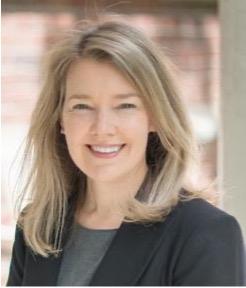Linda Rice, Ph.D.

As the Peer Teaching Observation Program Committee chair, Linda Rice is responsible for:
- Refinement of early PTOP processes and an observational rubric.
- Consideration of the role of students in a teaching observation program.
- Development and delivery of training for peer teaching observers.
- Program launch in spring 2024.
- Assessment and evaluation of the program launch.
“I’ve been a surgeon for eight years. For the past couple of them, my performance in the operating room has reached a plateau. I’d like to think it’s a good thing – I’ve arrived at my professional peak. But mainly it seems as if I’ve just stopped getting better.”
So begins The New Yorker October 3, 2011, article “Personal Best: Top athletes and singers have coaches. Should you?” by Atul Gawande. This article and Parker Palmer’s The Courage to Teach have been highly influential in terms of how I’ve come to understand peer observations —— why we tend to avoid them and why we desperately need them. We get our degrees, land our jobs, and in the case of college professors, start teaching. Our classroom doors close. Some things go well, but, of course, not everything does. And when we need help, or even just some feedback and a fresh look at what we’re doing, we often either feel uncomfortable (“Am I a weak teacher? What if someone finds out I have these struggles in the classroom?”) or don’t have a culture and structure in place to support regular peer observation of teaching.
What Gawande’s article goes on to say is that professional golfers and sopranos have coaches for the duration of their careers; surgeons generally don’t. Gawande talks about how through observing another surgeon do a procedure and watching a physician work with geriatric patients, his eyes were opened to new and better ways of doing his own work. Similarly, Parker Palmer discusses the value of vulnerability—admitting that we can all benefit from feedback and that we need to cultivate a culture where sharing our classrooms is part of our routine work as teachers.
This is the spirit I bring to serving as the Peer Teaching Observation Program (PTOP) Fellow.
PTOP Committee Members Include:
- Mark Rowe, College of Business
- Jennifer Smith, College of Fine Arts
- Angela Hosek, Scripps College
- Cheryl Geng and Jenny Chabot, College of Health Sciences and Professions